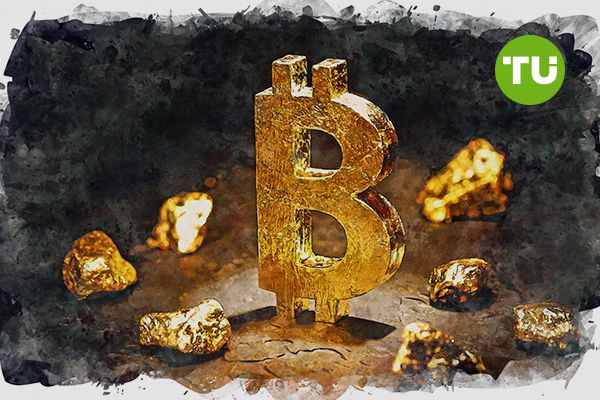End of gold rush: Why investors are choosing Bitcoin
 How the battle between gold and Bitcoin will end
How the battle between gold and Bitcoin will end
Bitcoin kicked off the week with a sharp rally, briefly surpassing $106,000. Today, that makes it more expensive than a kilogram of gold, raising the question once again: which asset is the better store of value?
On Monday, May 19, Bitcoin unexpectedly surged to nearly $107,000. It missed setting a new record by just a few thousand dollars before a correction began. This situation is notable because the price of 1 BTC exceeded the price of 1 kg of gold, which, according to Gold Rate 24, is around $103,500.
Once again, "digital gold" has outpaced the precious metal in price. This comes despite the fact that gold has shown steady growth since 2015, when a kilogram was priced at just $34,000.

Gold price per kilogram over the years. Source: Gold Rate 24.
Who is buying gold and why?
Gold has long been considered one of the most reliable assets for protecting capital during times of economic instability. Central banks, institutional investors, and large corporations buy it to diversify reserves and reduce currency risks.
One of the largest gold buyers is China, which has been increasing its gold reserves for the sixth consecutive month, bringing the total to $243.6 billion. For China, this is a strategic move to reduce dependence on the US dollar and strengthen financial stability amid geopolitical tensions.
Loading...
Gold is also in demand among crypto companies. For example, major stablecoin issuer Tether recently acquired 7.7 tons of gold to back its "gold" token XAUT.
In addition to Tether, other companies investing in gold and issuing gold-backed tokens include Paxos Trust (PAXG), Aurus (AWG), Asia Broadband (AABB Gold), and others.
Gold or Bitcoin?
However, more and more experts believe that Bitcoin has significantly greater growth potential than gold. Both assets are traditionally viewed as hedges against fiat currency devaluation. But in 2025, according to JPMorgan analysts, this rivalry has become a zero-sum game: the rise of one asset comes at the expense of the other. From February to April, gold was winning, but in recent weeks, capital has shifted toward Bitcoin.
Loading...
Over the past month, gold has dropped nearly 8%, while Bitcoin has gained 18%. This trend is also reflected in capital flows: investors are pulling out of gold ETFs and moving their funds into Bitcoin and crypto-focused investment products.
Bitcoin's growth is supported not only by gold’s weakening position but also by its own drivers. Companies like Strategy and Metaplanet continue to increase their Bitcoin holdings, while several U.S. states, including New Hampshire and Arizona, are beginning to consider digital assets as part of their strategic reserves.
Global crypto market development is providing an additional boost to Bitcoin. Major exchanges — Coinbase, Kraken, and Gemini — are strengthening their positions in the derivatives market. With gold weakening and crypto initiatives on the rise, JPMorgan analysts believe Bitcoin is set to be the main beneficiary in the second half of the year.
Gold from a test tube
Many remember the film "Angélique, Marquise of the Angels" and the series of movies based on the novels by Anne and Serge Golon. One of the main characters in these films was Joffrey de Peyrac, a wealthy man who created gold through alchemical experiments. And it seems that this character was somewhat of a visionary.
Recently, it was revealed that the future of gold might be under threat. CNBC crypto analyst Ran Neuner reported that scientists have learned how to create gold in laboratory conditions. This could soon make the metal no longer scarce and significantly devalue its worth.
Loading...
Bleak prospects for gold
While global investors continue to cling to gold as a time-tested asset, the market is shifting before our eyes. In 2025, Bitcoin not only surpassed the precious metal in price but also showed steady growth amid capital outflows from gold funds.
Large companies, institutional players, and even governments are betting on the digital asset, increasingly viewing it as a new form of insurance against global economic risks. Unlike gold, Bitcoin remains truly scarce, with its supply capped at 21 million coins, which only adds to its appeal.
Gold’s future, on the other hand, looks increasingly uncertain. Not only are falling prices and declining investor demand threatening its position, but the recent news that scientists can reproduce gold in laboratories questions its scarcity. If these technologies go mainstream, gold could lose its investment value. In that case, Bitcoin may ultimately take the lead as the dominant strategic asset.













































































































































